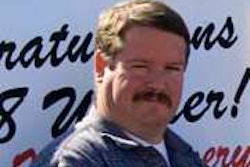AEM president Dennis Slater has published a letter stating that the Obama administrations “Making Trade Work for American Families” is a major step backward toward protectionism.
He’s right. If we don’t have a robust recovery in the manufacturing sector, there will be no rebound in the economic health of the country. Printing money doesn’t stimulate the economy. What’s will lead us out of this recession are businesses and entrepreneurs putting people to work making high value goods that the world needs.
And since the Germans, Japanese and Koreans are all making cars in Alabama, since the Swedish company Volvo sells billions of dollars of heavy equipment here in the U.S., since Caterpillar sells their big D11 dozers all over the world–how exactly is the new administration going to determine what is “American made.”
Slater’s letter isn’t on the AEM website yet, so I’ve pasted it into this post, below the read more line. I suggest you paste it into an e-mail and send it to your representatives in Washington.
AEM: President Obama’s troubling trade agenda, “Making Trade Work for American Families,” is a major step backwards
Statement by AEM President Dennis Slater
Recommended actions in new trade policy actually counterproductive to achieving stated goals
President Obama’s new 2009 trade policy agenda, released by the United States Trade Representative (USTR) on March 2, asserts it will promote “social accountability” and will emphasize improvements in the living standards of American families by “reorienting” the economy to meet challenges in “energy, the environment, and global competitiveness.”
In reality, the president’s agenda will do little, if anything, to help manufacturing companies such as the members of the Association of Equipment Manufacturers (AEM). The trade policy seems to be taking us backwards and will actually impede any progress in meeting the challenges that the president cites.
As an economic stimulus, the American Recovery and Reinvestment Act is an imperfect step forward, but with its focus on rebuilding America’s infrastructure it will put some people back to work. Improved infrastructure will enhance the movement of goods, and thus trade and our quality of life.
However, with the announcement of the trade policy agenda, the president seems to be leading the U.S. back to protectionism. This philosophy has been proven over time to be counterproductive to American manufacturing, and thus detrimental to the people and communities relying on the jobs, taxes and other benefits that a strong economy provides.
Instead of moving forward with the Free Trade Agreements (FTAs) already signed with Panama, Colombia, and South Korea, the president now says these key FTAs need more review. The president also indicates he intends to give NAFTA another look, which cannot inspire confidence in our most important trading partners, Canada and Mexico. After the good faith and hard work invested in these agreements, it is an insult to our valued friends and allies and to our vital trading relationships to now revisit signed agreements, which seems to be the course of action proposed by the president.
AEM urges Congress to approve the FTAs with Colombia, Panama and South Korea and not to reopen NAFTA. FTAs contribute to a higher quality of life, benefit businesses, workers, and consumers in significant ways. These agreements open foreign markets to U.S. exporters and investors. With a stalled Doha round in the World Trade Organization (WTO) negotiations, bilateral and multilateral agreements such as the ones already in effect are even more critical in fostering expanded trade across borders. In contrast to the U.S., the European Union is joining East Asian and Latin American countries in negotiating dozens of FTAs. Our failure to pursue FTAs could very well cost U.S. manufacturers much needed competitive advantages by keeping the playing field tilted in favor of our competitors.
AEM agrees with the president that the U.S. should seek a successful conclusion of the Doha Round in 2009. AEM would like to see significant cuts in foreign tariffs and trade barriers on industrial equipment – American companies can always compete successfully when the trade rules are the same for all trading partners. Likewise, the U.S. needs to oppose protectionist initiatives at home, or calls for unilateral foreign policy sanctions, especially in such a critical economic crisis when American equipment manufacturers need export markets more than ever to stay afloat.
An issue that in AEM’s view should have been included in the trade policy statement is trade with Cuba. The United States implemented an embargo on trade with Cuba in October 1960, intended to pressure the Castro regime to move toward democracy. But, the unilateral sanctions imposed by the U.S. have failed to achieve this, while isolating the United States from its allies and denying access for U.S. companies to markets in which firms from other countries can easily do business. AEM supports efforts to broaden economic engagement with Cuba in the belief that additional commercial and people-to-people contacts will promote a transition to democracy and full civil liberties.
A sensible trade policy will ultimately benefit all U.S. citizens as well as those in other countries the president says he is so interested in helping. Improvements in energy, the environment, and global competitiveness are more likely to result with free and fair trade than they are without it.
AEM is the North American-based international trade group representing the off-road equipment manufacturing industry. AEM is headquartered in Milwaukee, Wisconsin, with offices in the capitals of Washington, D.C., Ottawa, Beijing and a European presence in Brussels. It represents more than 800 companies in the agriculture, construction, forestry, mining and utility sectors.








